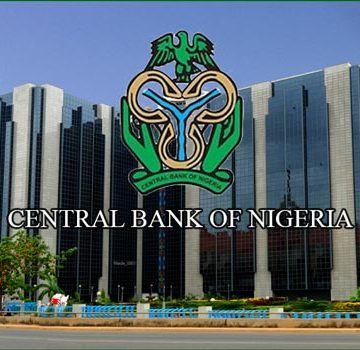HOUSTON (TEXAS) – In a strategic move to harness the economic potential of Nigeria’s diaspora, the Central Bank of Nigeria (CBN) has led a combined team of the Nigeria Inter-Bank Settlement System (NIBSS), major Nigerian banking institutions, and International Money Transfer Operators (IMTOs), to engage with
the Nigerian Diaspora community in Houston, Texas, United States of America at a forum titled: “Optimizing Remittances to Nigeria: A Vision for the Future”.
Speaking at the forum with the theme: “Optimising Remittances to Nigeria: A Vision for the Future,” the Deputy Governor (Economic Policy), CBN, Muhammad Sani Abdullahi, told the gathering of critical stakeholders in the remittance ecosystem that the aim was to engage with the Nigerian diaspora community on opportunities to enhance remittance flows and strengthen Nigeria’s financial sector.
Reiterating Governor Olayemi Cardoso’s commitment to double the volume of capital inflows and diaspora remittances to Nigeria, Abdullahi emphasised the Bank’s commitment to “strengthening macroeconomic fundamentals to create an enabling environment where the private sector can thrive and generate quality jobs for Nigerians.”
He said the event was part of a series of engagements the Bank would be participating in over the coming months. He noted that the CBN, in an era of bold reforms, is prioritising strategies to leverage diaspora remittances as a catalyst for inclusive economic growth, financial inclusion, and overall national development.
Also speaking, the Deputy Governor (Financial System Stability) at the CBN, Mr. Philip Ikeazor reiterated the forum’s call to shift the perception of remittances from a source of consumption to a tool for investment. He emphasised that remittances could play a transformative role in Nigeria’s development if channelled effectively into productive investments.
In his remarks, Dr. Oliver Alawuba, the Group Managing Director/CEO of United Bank for Africa (UBA) and Chairman of the Body of Banks’ CEOs in Nigeria,
stressed the need for collaboration among banks, regulators, fintechs, and the broader ecosystem, noting that no single institution can unlock the total value of
remittances.
Nneka Onyeali-Ikpe, CEO of Fidelity Bank, addressed the challenges diaspora members face in sending money home efficiently, highlighting high costs and limited access to financial services. Collaboration between banks and fintechs emerged as a key solution.
Venture Garden Group’s chief executive officer, Bunmi Akinyemiju, noted that stronger collaboration between banks and fintechs could reduce costs and improve access to remittances.
Yemisi Edun, CEO of First City Monument Bank, stressed the importance of trust in the remittance system. “One of the things we’re focusing on is a robust KYC system to instil confidence. We believe trust is not something we can build alone, so we are partnering with IMTOs and fintechs.”
Adobi Nwapa, Executive Director of Zenith Bank, also commented on the need for greater concessions for diaspora customers: “We’ve made it so simple.
We’ve been doing a lot of concessions to the diaspora because we value their remittances.”
Expressing concern about Nigeria’s presence on the Financial Action Task Force (FATF) grey list, , the CEO of LemFi, Olalere Ridwan, noted that reducing Nigeria’s risk status could significantly lower these fees and make remittances more affordable for the diaspora.
Remittances have been a significant source of financial inflows for Nigeria, averaging $20.5 billion annually over the past decade, according to the World Bank.
However, much of these funds are directed toward immediate consumption rather than long- term investments that could drive economic growth. The CBN, alongside key financial stakeholders, aims to shift this approach by exploring how remittances can be better leveraged for national development.
Governor Olayemi Cardoso of the Central Bank of Nigeria has placed a strategic emphasis on the Nigerian diaspora’s role in shaping the country’s economic future.
The Houston forum, the first in a series of planned engagements, highlights Governor Cardoso’s focus on strengthening ties with Nigerians abroad. The CBN
aims to unlock the full potential of remittances and harness the power of the diaspora by collaborating with key stakeholders to drive sustainable economic growth.




